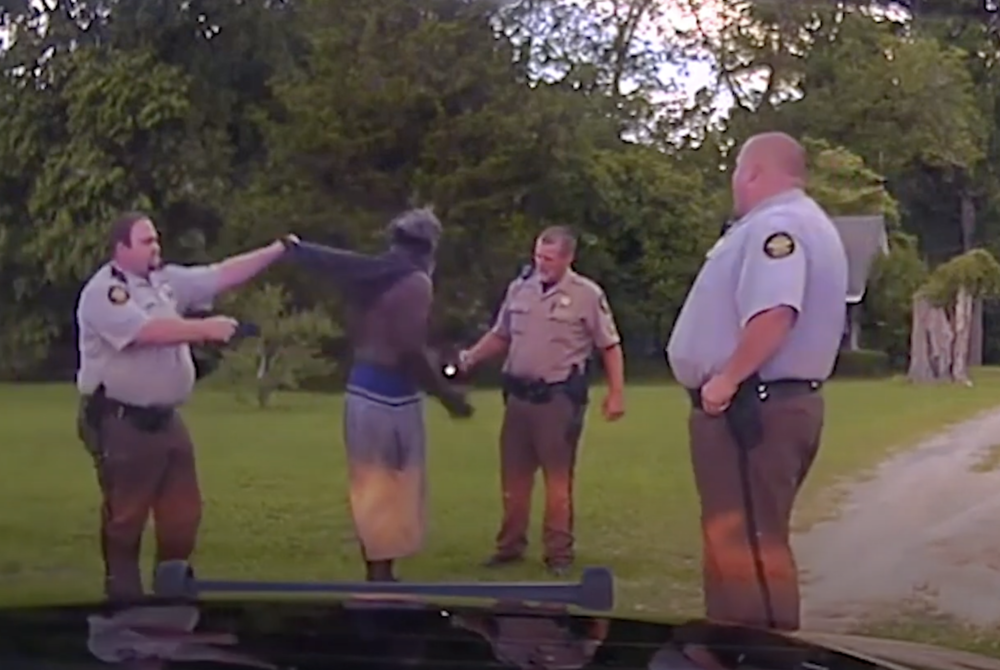
Caption
Rhett Scott, left, lifts Eurie Martin's shirt in order to get skin-only Taser contact as Henry Lee Copeland, center right, and Michael Howell talk to Martin during the 2017 encounter where Martin died. The three former deputies now face murder charges.

